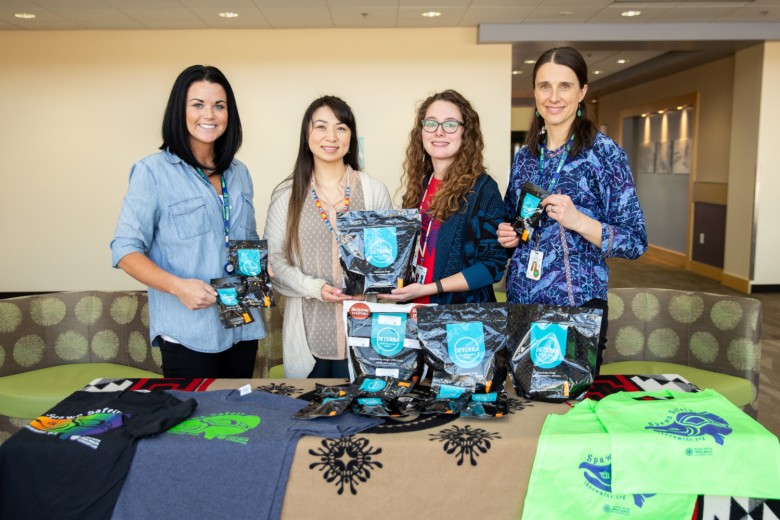Safe and convenient medication disposal options available from ANTHC
September 23, 2019
In 2017, there were 102 overdose deaths involving opioids throughout the state of Alaska—a rate of 13.9 per 100,000 persons. Prescription opioids (such as hydrocodone, oxycodone and morphine) are prescribed by doctors to treat moderate to severe pain. However, they have serious risks and side effects, including dependency, addiction, overdose and accidental poisoning.
In order to assist in the prevention of substance misuse and accidental poisoning, Alaska Native Tribal Health Consortium now provides free medicine disposal products through the iknowmine website.
Safe medicine storage includes:
- Keeping medications in original containers, which should have a label with name of person prescribed, medication name, instructions for use, and expiration date.
- Keeping medication out of reach of children, and if necessary in locked boxes
- Keeping refrigerated medication separate from food
Safe medicine disposal includes:
- Neutralizing medicine using Deterra® drug deactivation bags or buckets
- Returning unused medications to your local pharmacy
- Medication mail back programs
The freemedication deactivation bags and buckets are available to individuals, Tribal organizations and health clinics throughout Alaska. To view and order available products go to www.iknowmine.org/safe-medicine. Deterra products are available in multiple sizes, are effective in deactivating drugs and are safe to throw away in your local landfill or dump. Deactivating medications using Deterra is a great solution to safely dispose of old, expired, or unused medicines and can easily be implemented in rural, remote villages or larger cities. By reducing unintended access to drugs and alcohol in our homes, we help keep our families and communities safe. Lock up your drugs and alcohol products. If medicines are unused or expired, please take time to dispose of them in a safe way.
About opioid misuse
Anyone who takes prescription opioids can develop dependency or addiction. Addiction is a chronic, yet treatable medical condition involving changes to brain circuits that are involved in reward, stress, and self-control. Opioid addiction is characterized by a powerful, compulsive urge to use opioid drugs, even when they are no longer medically required. Individuals who experience addictive behaviors may prioritize getting and using these drugs over other activities in their lives, often negatively affecting their professional and personal relationships.
Opioids change the chemistry of the brain, which can lead to tolerance. Over time an individual’s dose needs to be increased in order to achieve the same effects. Taking opioids over a long period of time produces dependence, such that when people stop taking the drug, they have physical and psychological symptoms of withdrawal. Dependence is not the same as addiction; although individuals who take opioids for an extended period of time will become dependent, not everybody will also experience the compulsive, continuing need for the drug that characterizes addiction.
When prescribed by a provider and taken properly, opioids can help us heal. Keeping medications securely stored and properly disposed of after use are the best ways to prevent dependency, addiction, overdose, and accidental poisoning.
ANTHC’s Substance Abuse Prevention Initiative is committed to assisting rural Alaskan communities develop local solutions to address and prevent the misuse of drugs and alcohol. These items are part of a larger group of resources that community members and providers can access to promote safe medicine use, healthy homes and communities. If you or someone you know is misusing prescription drugs, visit: https://www.samhsa.gov/find-help/national-helpline or call 1-800-662-HELP (4357).
